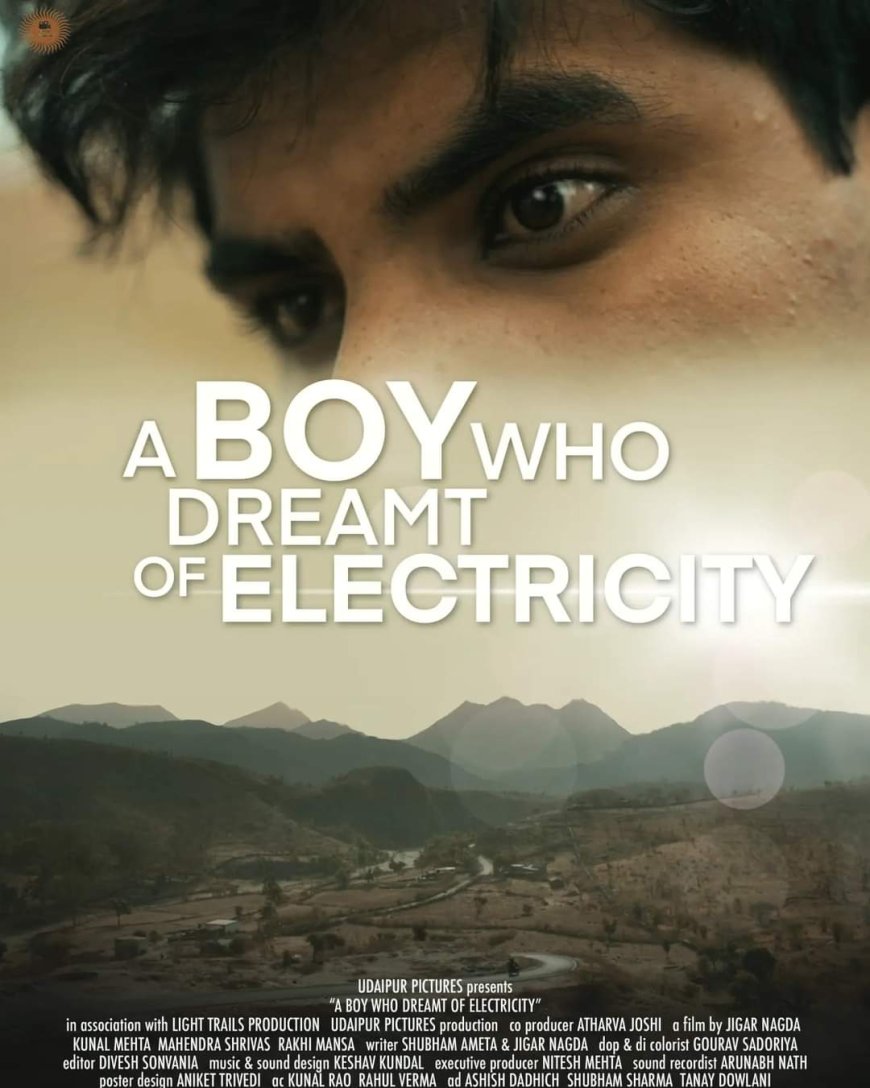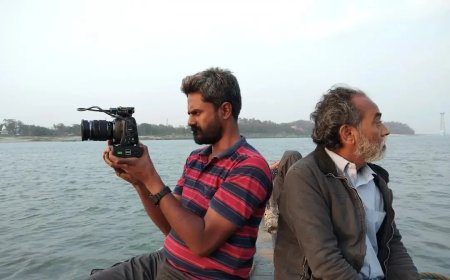Review: A Boy Who Dreamt of Electricity (2024)
Dipankar Sarkar writes a review on Jigar Nagda’s first feature film ‘A Boy Who Dreamt of Electricity’ .

The caste structures and divisions well existing in our society have often been the themes of Indian cinema. The life conditions of people belonging to lower castes or tribal communities and their perpetual suffering are depicted alongside violence and discrimination unleashed upon them. Jigar Nagda’s first feature film ‘A Boy Who Dreamt of Electricity’ also deals with such social inequity and that gives rise to dehumanising effects. It is a social drama that blatantly depicts the inhumane conditions and discrimination that the tribal population of our country suffers from.
Within a tribal region in Rajasthan, a youth named Bheru (Kunal Mehta) tries to keep the family farm profitable. With his father’s (Mahendra Shrivas) help, he strives to earn money for the sake of his sick mother (Rakhi Mansa). Their life is a constant struggle. Bheru's home lacks electricity. The situation has led to several broken marriage proposals and brought shame and debt upon the family. Upon sharing his issues with his best friend, Bheru builds the courage to go out to the city for work. In the city, he is fascinated with the capacity of solar power to generate electricity. He gets motivated and decides to bring electricity to the village. But destiny has some other plans. Unfazed by the situation, Bheru becomes obstinate in his resolve to have an electric connection at his home.
Whether the village chief acts on political patronage to ensure the masses remain ignorant, or the indifference shown by the electricity department crushes the spirit of the common man. The people belonging to the tribal communities are subservient to the upper caste, which preserves the social order in the village. Nagda sensitively conveys such discrimination and dehumanisation that drives a deprived man from the tribal community to alter his fate. The film's narrative had the risk of falling into sickly sentimentality, full of tear-jerking scenes and hagiography meant to perpetuate the hero. But this is consciously avoided by the filmmaker. Bheru's life is full of instances of seeming foolishness, provoking sympathy and predicting failure. But again and again, he rises like a phoenix to go after his objective.
The film delivers a strong message—education as a means for the less fortunate—without being preachy. When Bheru learns about the presence of solar light his life undergoes a complete turnaround towards positivity. The story unleashes the potential to break stereotypes, create empathy, and contribute towards larger social change by creating an understanding and awareness of what individuals from the tribal community go through in the remote corners of our country. It also realistically highlights the ongoing prejudice and bias that continue to complicate life for people like Bheru. The character of Bheru by Kunal Mehta depicts resilience against adversity. Even in the face of adversity, he continues to strive for a better future.
All in all, ‘A Boy Who Dreamt of Electricity’ is an unflinching and straightforward story, free from romance, action, suspense, and songs. What makes the film strong is its rough-hewn simplicity and candour. The characters are genuine and the situations are realistic. The director deliberately avoids sensationalizing any melodrama. The directness of this honesty is precisely what compels us to view this low-budget venture.
*****
What's Your Reaction?

































































